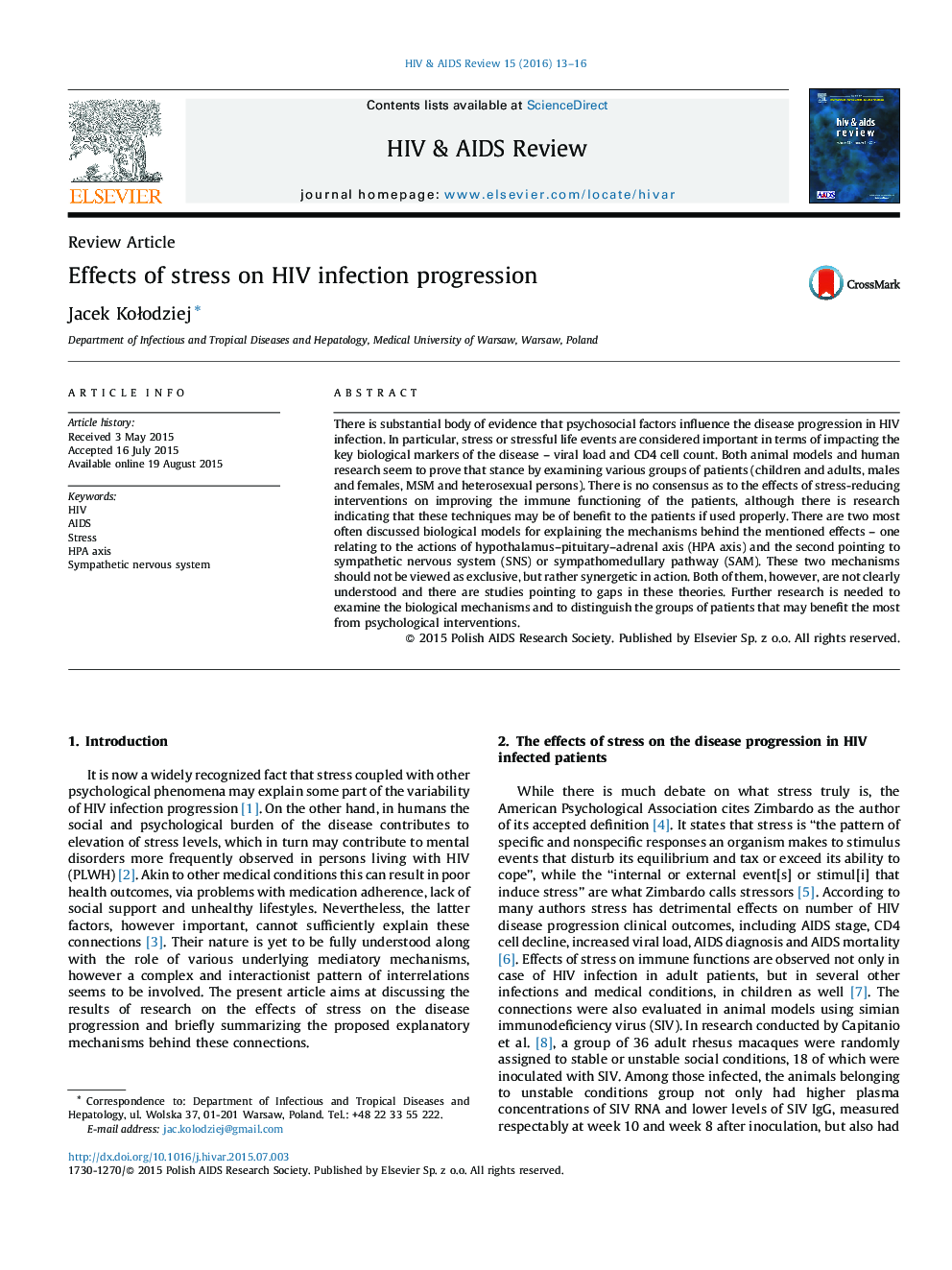| کد مقاله | کد نشریه | سال انتشار | مقاله انگلیسی | نسخه تمام متن |
|---|---|---|---|---|
| 3332276 | 1213069 | 2016 | 4 صفحه PDF | دانلود رایگان |
There is substantial body of evidence that psychosocial factors influence the disease progression in HIV infection. In particular, stress or stressful life events are considered important in terms of impacting the key biological markers of the disease – viral load and CD4 cell count. Both animal models and human research seem to prove that stance by examining various groups of patients (children and adults, males and females, MSM and heterosexual persons). There is no consensus as to the effects of stress-reducing interventions on improving the immune functioning of the patients, although there is research indicating that these techniques may be of benefit to the patients if used properly. There are two most often discussed biological models for explaining the mechanisms behind the mentioned effects – one relating to the actions of hypothalamus–pituitary–adrenal axis (HPA axis) and the second pointing to sympathetic nervous system (SNS) or sympathomedullary pathway (SAM). These two mechanisms should not be viewed as exclusive, but rather synergetic in action. Both of them, however, are not clearly understood and there are studies pointing to gaps in these theories. Further research is needed to examine the biological mechanisms and to distinguish the groups of patients that may benefit the most from psychological interventions.
Journal: HIV & AIDS Review - Volume 15, Issue 1, 2016, Pages 13–16
